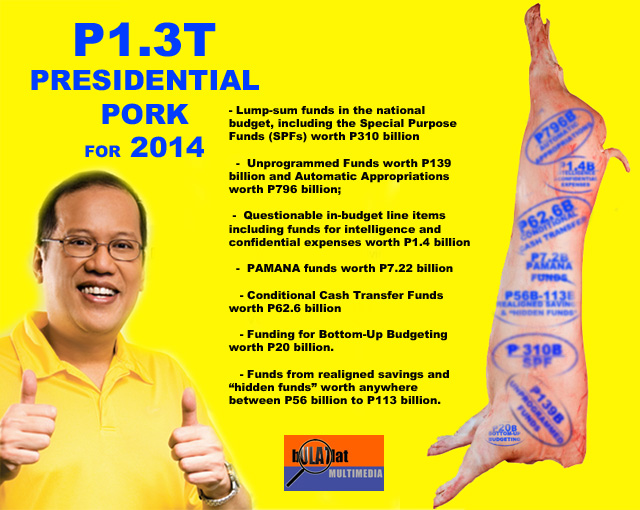Stratbase ADR Institute launches a book containing policy recommendations for the next President
The Philippines faces a multifaceted set of issues as a new administration is about to be ushered in on June 30, 2022. Stratbase Albert del Rosario Institute (or Stratbase ADRi), an independent strategic research organization, brought together experts from various fields to craft sixteen (16) policy recommendations for a strategic government agenda, with resilience and sustainability in mind, which the next administration may consider. Their policy recommendations, with specific points of action and intervention, have been compiled in a book “Beyond the Crisis: A Strategic Agenda for the Next President” which recently launched.
Beyond the Crisis: A Strategic Agenda for the Next President brings into focus three general policy agenda: foreign and security, development and economic, and governance.
At the book launch, some of these experts presented their policy recommendations.
Foreign and Security Policy Agenda
In “A Responsive and Strategic Foreign Policy Outlook in an Interconnected and Multipolar World”, Prof. Victor Andres Manhit, President of Stratbase ADRi, emphasizes the importance of observing the external environment and growing trends and development to its possible impact on national interests and development. Likewise, this study also positions the potential and critical role of the Philippines in international and regional affairs as growing uncertainties borne from the reorientation towards multipolar world, evolving global norms and initiatives of multilateral cooperation and economic diplomacy, and the changing definition of security and development.
Dr. Renato De Castro, Professor at De La Salle University, balances this foreign policy recommendation with a feasible approach towards the reformulation of the National Security Strategy as outlined in, “A National Security Strategy (NSS) for the 17th Philippine President: The Case for A Limited Balancing Strategy”. Taking into context the lessons learned from the Duterte administration, he proposes a strategy promoting territorial and sovereign rights based on the 2016 Arbitral Ruling, incorporating and highlighting human security priorities such as Public Health Security, continuing efforts to the AFP modernization program, implementing organizational and legislative reforms involving the PNP and AFP, and strengthening existing and new alliances and partnerships with multilateral organizations committed to a rules-based international system.
Development and Economic Policy Agenda
Dr. Toby Melissa Monsod, Professor at the School of Economics, University of the Philippines, goes deeper into the discussion of non-traditional security with climate change in “Accelerating Resilience and Climate Change Adaptation: Strengthening the Philippines’ Contribution to the Global Decarbonization Agenda.” With the high vulnerability of the Philippines to the detrimental consequences of climate change, it should reset its ambition in strengthening its contribution to the Paris Agreement by reconnecting to climate adaptation or resilience and sustainable development as the anchor and context of climate action. She argues that, at the local level, building a robust community ownership for climate action is a necessary condition for any successful pursuit of climate-smart low-carbon development.
In “Improving the Philippine Agriculture Sector by Establishing Food Production Areas”, Dr. Carlos Primo “CP” David, Professor, National Institute of Geological Sciences, University of the Philippines Diliman, weighs in on government support and greater private sector participation to accentuate the essential role of agriculture and the establishment of self- contained food production areas. In line with this, five strategies to achieve this goal need to be utilized: adapt climate-resilient measures; promote crop overproduction and food processing; strategic farm development for cool weather crops; smallholder farm optimization and land consolidation strategies; and the creation of social enterprise farms.
Governance Policy Agenda
Dr. Francisco “Kiko” Magno, Professor at De La Salle University, puts forward an agenda for development through reforms and innovation in the study titled, “Governance Agenda for Development in a Post-COVID-19 Philippines” anchored on building strong institutions for citizen deliberation, participation, and oversight in the exercise of authority and the disbursement of public resources. As anti-corruption efforts require a comprehensive approach, institutional strengthening, government effectiveness, and efficiency in the delivery of public services should simultaneously follow suit, facilitated by legislative, political, bureaucratic, and digital reforms.
In “Reducing Inequality in the Philippines: Rationale and Reform Options”, Dr. Ronald U. Mendoza, Dean and Professor at Ateneo School of Government, raises the issue on inequality and its long-term and potentially detrimental impact on social cohesion, political stability and economic growth and development. Further exacerbating this is the continued struggle on the threats of disaster vulnerability, upward social mobility, and political inequality. The study zeroes in on reforms that build strong social safety nets, and enhances competition in the market economy and political system to break free from the inequality trap.
The other experts, whose policy recommendations were likewise included in the Beyond the Crisis: A Strategic Agenda for the Next President book, were:
- Richard Heydarian, “The Great Cauldron: China, US, and the New Cold War in the Indo-Pacific”
- Dr. Chester Cabalza, “Philippine Civil and Maritime Security: Transforming from Archipelagic to Maritime Power”
- Dr. Mely Caballero-Anthony, “Non-Traditional Security Threats to Peace and Security in the Indo-Pacific”
- Diwa Guinigundo, “Philippines: Pursuing an Investment-Led, More Sustainable Economic Growth”
- Charlotte Justine Diokno-Sicat, “Building Back Better Towards Inclusive Growth with Innovative Public Sector Governance”
- Dr. Vicente B. Paqueo and Dr. Michael R. M. Abrigo, “Issues for the Next Administration’s Development Agenda: On Human Capital and Labor Markets”
- Magdalena A. Barcelon, MD, Katharina Anne D. Berza, Eleanor A. Jara, MD, “Beyond Health Measures: Towards a Genuine People’s Health Agenda”
- Zy-za Nadine Suzara, “Rethinking Public Spending Priorities Towards an Inclusive Recovery”
- Dr. Sherwin Ona, “Digitalization Agenda 2022: Towards A Resilient Philippines Through Digital Transformation and Inclusion”
- Dr. Rizal Buendia, “Lessons and prospects in Philippine political governance: cutting across regimes from Marcos to Duterte”
Digital versions of these experts’ policy recommendations may be found at https://adrinstitute.org/special-studies/.

